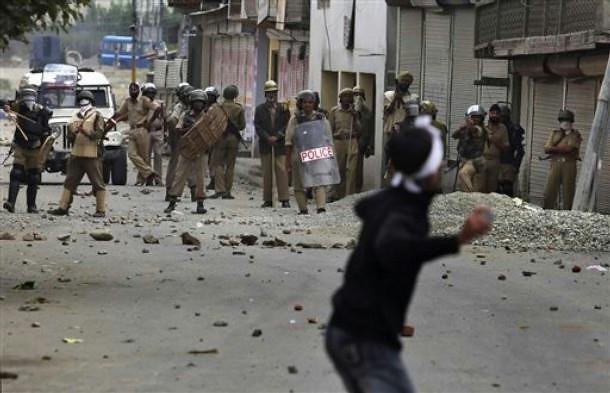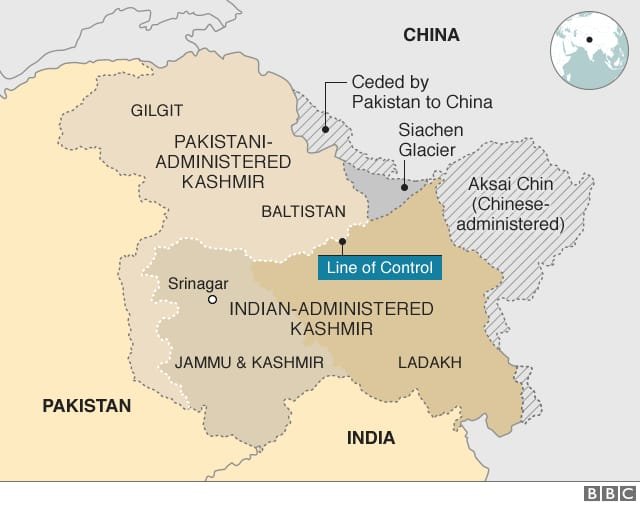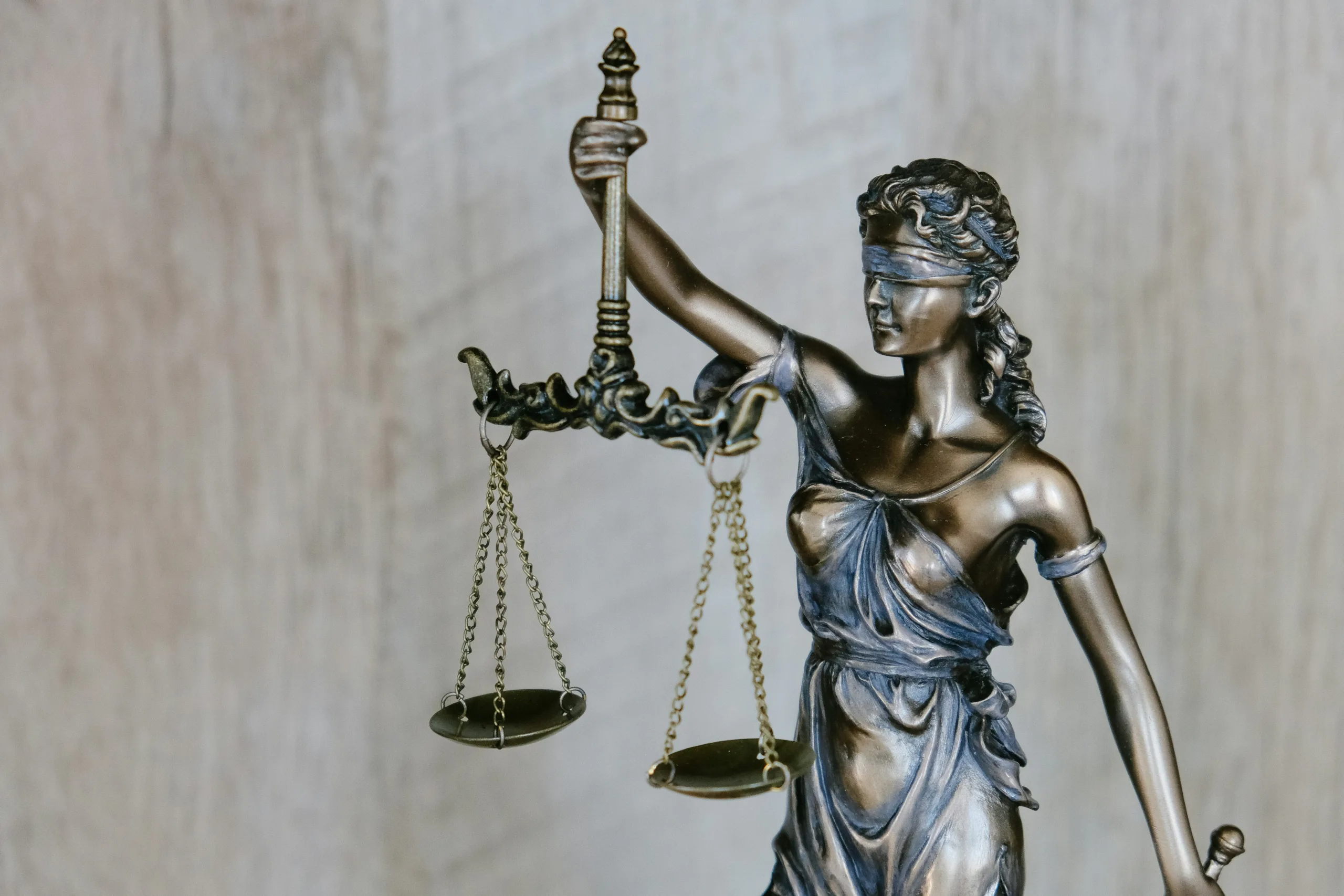

This image is licensed under a Creative Commons Attribution 2.0 Generic License
Kashmir is a Himalayan region that refers to the former princely state of Jammu and Kashmir before the division of the Indian subcontinent in 1947. This region is not only known for its extraordinary beauty and natural resources, food, music, art, and architecture but also as the cause of disputes between Pakistan, India, and China. This has led to decades of violence and unrest in the region as well as to three wars between two nuclear powers.
Decolonization and First Kashmir War 1948
Great Britain ruled most of the Indian subcontinent from the 17th to the 20th centuries. At first, they ruled indirectly over the East India Company. Then, from 1858, directly and officially over the British Empire.
Initially, Britain was put under immense pressure by the civil war between the majority of Hindus and the minority of Muslims in India, but British rule had to end after World War II. At that time, Mohammad Ali Jinnah, the founder of Pakistan, was calling for a separate state for the Muslims of India. After much fighting and sacrifice, on August 14, 1947, an independent Muslim majority state, the Islamic Republic of Pakistan, was established. Muslim majority states joined Pakistan and so Hindu majority states joined India.
Under the terms of partition, the people of more than 550 princely states in colonial India that were not directly subordinate to the British government had the right to decide their future by choosing either to join a new nation or to remain independent.
The princely state of Jammu and Kashmir, which had a Muslim majority, was ruled by Maharajah Hari Singh at that time. Hari Singh wanted Kashmir to become independent. But when the tribesmen of Pakistani Pashtun poured across the border into the region to liberate Kashmiri Muslims from their Dogra overlords and thereby took over much of western Kashmir, Hari Singh asked India for assistance. For this he joined India and signed the certificate of accession with India. India sent its troops to Kashmir. From 1948 to 1949 the first Kashmir war was waged. The war led to the Indian occupation of two thirds of the former princely state, one third was occupied by Pakistan.
As a result of the regional war, Kashmir was divided into:
- India: southern areas, consisting of the Kashmir Valley, Jammu and Ladakh
- Pakistan: northern areas, consisting of Azad Kashmir and Gilgit-Baltistan
- China: Aksai Chin

The treaty between Kashmir and India promised that the future of the state would be determined by a popular referendum. In addition, Article 370 has been incorporated into the Indian Constitution. Article 370 affirmed that the Indian Parliament needs the approval of the government of Jammu and Kashmir for the implementation of laws in the state, except in cases of defence, foreign policy, finance, and communication.
1965 War
Pakistan and India waged the second war over disputed Kashmir in early 1965 when Pakistani troops attempted to take over Indian-occupied Kashmir by force. The United States is accused of setting the stage for war by supplying weapons to both opponents. The war lasted seventeen days.
Kargil War
From time to time India has also violated the Line of Control (LOC) ceasefire. The control line divides Kashmir into the part administered in the east and south of India (9 million people) and the part administered in the north and west of Pakistan (3 million people). Pakistan also called its part Azad Kashmir (Free Kashmir).
This was also one of the reasons for the fourth war (Kargil War) between Pakistan and India in 1999. This war took place in the Kargil district of Kashmir. Kashmiri freedom fighters backed by Pakistan took positions in the Kargil Mountains in cool winters and were later supported by Pakistani armed forces. It took the Indians a long time to find out the presence of the Pakistani military. Because Pakistani troops were positioned at higher elevations, they had the advantage of being able to easily shoot Indian troops in combat. Nawaz Sharif, the former Pakistani Prime Minister, signed an agreement with the United States to withdraw his troops from the Kargil. When he did so, Indian forces attacked the posts and regained Kargil’s possessions.
Sino-Indian War
In 1962, troops from the People’s Republic of China and India clashed in an area of Kashmir that both were making claims. China won the war. The Aksai Chin area, part of which was under Chinese jurisdiction before the war, has remained under Chinese control ever since.
The Sino-Pakistan Agreement
The 1963 Sino-Pakistani Agreement between the governments of Pakistan and China established the border between these countries. The deal resulted in China and Pakistan each withdrawing approximately 1,900 square kilometres in the Kashmir region. This agreement is rejected by India as it also makes claims over some of the territories. This makes the relationship between Pakistan and China stronger.
Why is Kashmir Important to Pakistan, India and China?
The Kashmir Valley supplies the entire region with fresh water via its glaciers. The glacial water that flows through Kashmir provides water and electricity to one billion people in India. Pakistan also relies heavily on glacial waters flowing out of the region to support its agricultural sector.
With a growing population and increased demand for electricity, India has shown interest in developing more dams in the region. Pakistan fears that India may divert irrigation water and use water as a weapon against Pakistan. Kashmir is therefore an important national security problem for both nations, the control of which could pose an existential threat to the other country.
In 1960 India and Pakistan signed the Indus Waters Treaty brokered by the World Bank. The agreement gave India control of the Beas, Ravi and Sutlej Rivers and Pakistan got control of the Indus, Chenab, and Jhelum. Since all rivers flowed through India, India received special provisions for the development of hydropower. The release of excessive water on the Indian side has repeatedly led to flooding across the border. Both countries’ self-interest in water and electrical energy from the Kashmir region has brought them into trouble and warfare.
Current Situation in Kashmir
In August 2019, the Indian government revoked the special status (Article 370) that India-administered Kashmir had received in its constitution. India has taken away from Kashmir the right to its own constitution and the autonomy to legislate. Now people from other countries can buy lands in Indian-occupied Kashmir. In addition, India sent thousands of additional troops into the disputed region, imposed a curfew, shut down telecommunications and the Internet, arrested political leaders, lawyers and activists to stop protests against the revocation of Article 370 that had caused trouble in the region. This move exacerbated pre-existing tensions with neighbouring Pakistan, which downgraded its diplomatic relations with India.
India has more than half a million soldiers stationed in Indian-administered Kashmir. After the Indian occupation of Kashmir, India resorted to brutal methods of repression and tried to silence the Kashmiris who have been fighting for self-determination for a hundred years. For decades both young students and old men who campaigned for the freedom movement or spoke out against the cruelty and inhuman siege in Kashmir were arrested, tortured and killed. Girls and women were raped and kidnapped by Indian soldiers. There were always murders and massacres. To date, thousands of innocent locals have been killed and later claimed that they were allegedly Pakistani infiltrators. However, through several investigations, the lies of the Indian army were exposed to the world.
Mass graves have been identified across Kashmir by human rights activists believed to contain the bodies of thousands of Kashmiris who have disappeared. A 2011 investigation by the State Commission on Human Rights confirmed that thousands of bullet-riddled bodies are buried in unmarked graves in Jammu and Kashmir. To date, 70,000 people have been killed, 8,000 have disappeared and no one knows where they are. Kashmir has been completely militarily cordoned off for a year and the residents are deprived of their basic rights and restricted to their homes.
Role of UN in the Kashmir Conflict
India was the first country to refer the matter to the UN Security Council. India filed a formal complaint against Pakistan on January 1, 1948. After arguments from both India and Pakistan were brought forward on January 17, 1948, the United Nations tabled its first resolution demanding that both sides withdraw their forces and call a referendum to decide the fate of the people of Kashmir. According to the UN resolution, the people of Kashmir will decide whether they want to join India or Pakistan. This referendum has not yet taken place. In 2019, the United Nations accused India of human rights violations in Kashmir and demanded the formation of a commission of inquiry to investigate the allegations.
In addition, India does not agree to withdraw its armed forces from Kashmir and refuses to respond to the UN resolution. India claims the Kashmir conflict is a bilateral problem between India and Kashmir and has rejected the offer of mediation. Indian Prime Minister Narendra Modi had said in a joint media interaction with Trump that the Kashmir conflict was a bilateral matter, and that India does not want any mediation by third parties.
On the other hand, Pakistani Prime Minister Imran Khan has often said that he would be open to dialogue if the Kashmiris were given the right to self-determination under UN resolutions. He also again called on US President Donald Trump and the United Nations to take on the role of mediator between his country and neighbouring India in the dispute over Kashmir in order to resolve the problems peacefully.
Border Skirmishes between India and Pakistan in 2019
Tensions between Pakistan and India increased on February 14, 2019, following the Pulwama attack in India, with 40 security guards killing and many others injured. India blamed Pakistan for the attack and then vowed that there would be a “robust response”. The Pakistani government denied and continues to deny that it was involved in the attack.
The Indian Air Force then carried out air strikes on February 26, 2019 in Balakot, a town in the Mansehra district in northern Pakistan. The Indian government carried out the military actions in response to the Pulwama attack, which had occurred almost two weeks earlier, and claimed that these strikes were to kill many groups of jihadists and Jaish-e-Mohammed terrorists allegedly planning to launch further suicide missions. The Pakistani government denied the result of the air strikes, there have been no deaths since the Indian planes were stopped and the missiles had hit uninhabited areas.
The next day, February 27, 2019, the Pakistani military carried out an air strike against a number of targets in Indian-occupied Kashmir. Although the Pakistani Air Force was able to hit Indian military installations, they threw their bombs in uninhabited areas of Indian-occupied Kashmir to minimize the human loss and damage. In addition, the Pakistani Air Force shot down two Indian planes that attempted to penetrate Pakistani airspace, with an Indian pilot captured by the Pakistani military.
Imran Khan, the current Prime Minister of Pakistan, stated that the air strikes were being carried out to send a message to India and called for negotiations to avoid a full-blown war. Then the Pakistani military released the Indian pilot captured two days earlier as a gesture of peace.
Possible Solution of Kashmir
India has stripped Kashmir of the political, economic, and judicial autonomy promised in Article 370 of the Indian Constitution, which has led to even greater unrest and possible conflict in the region. In disputed areas, a fair and sustainable process should be strongly supported, in which people of Kashmir can decide about their future through an internationally mediated referendum.
In reality, the Kashmiris are fighting for their basic rights and their generally recognized right to self-determination. They are not fighting the Indian army. They are demonstrating against human rights violations that are taking place in Kashmir. This regional dispute should be resolved immediately, and the United Nations should get both countries to respond to the resolution, also by pressure, as not only the freedom of Kashmir is at stake, but also two nuclear powers in the region are on the verge of war. It will just take one spark to worsen the already tense situation completely.









